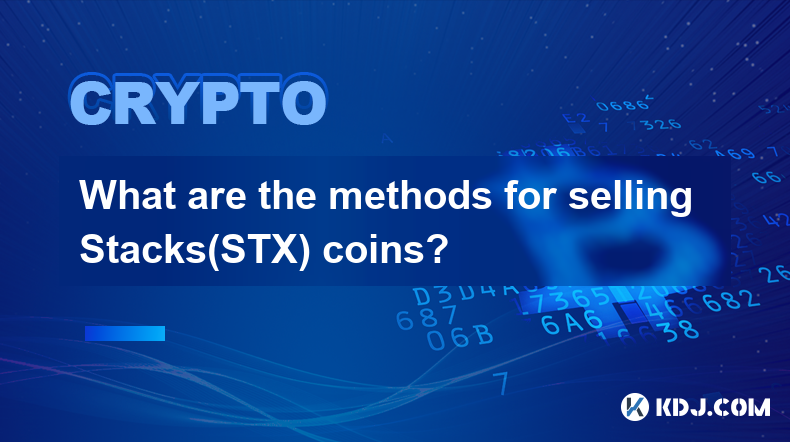-
 Bitcoin
Bitcoin $94,583.7736
-1.07% -
 Ethereum
Ethereum $1,818.9037
-0.64% -
 Tether USDt
Tether USDt $1.0000
-0.02% -
 XRP
XRP $2.1537
-0.93% -
 BNB
BNB $599.4781
1.78% -
 Solana
Solana $146.8762
0.32% -
 USDC
USDC $0.9999
-0.01% -
 Dogecoin
Dogecoin $0.1719
-0.30% -
 Cardano
Cardano $0.6677
-2.65% -
 TRON
TRON $0.2486
0.23% -
 Sui
Sui $3.4640
5.67% -
 Chainlink
Chainlink $13.7327
-2.06% -
 Avalanche
Avalanche $19.7020
-1.42% -
 Stellar
Stellar $0.2612
-2.07% -
 UNUS SED LEO
UNUS SED LEO $8.6594
-4.25% -
 Shiba Inu
Shiba Inu $0.0...01282
0.69% -
 Toncoin
Toncoin $2.9868
-2.26% -
 Hedera
Hedera $0.1752
-1.10% -
 Bitcoin Cash
Bitcoin Cash $355.1956
-0.22% -
 Hyperliquid
Hyperliquid $20.2485
-0.62% -
 Litecoin
Litecoin $85.7355
-0.81% -
 Polkadot
Polkadot $3.9582
0.41% -
 Dai
Dai $1.0002
0.01% -
 Monero
Monero $278.7119
1.35% -
 Bitget Token
Bitget Token $4.3009
-1.08% -
 Ethena USDe
Ethena USDe $1.0004
0.00% -
 Pi
Pi $0.5917
-0.25% -
 Pepe
Pepe $0.0...07981
-1.17% -
 Bittensor
Bittensor $373.9157
8.79% -
 Aptos
Aptos $5.0658
-1.05%
What are the methods for selling Stacks(STX) coins?
For large- volume transactions with discretion, selling STX via Over-the-Counter (OTC) brokers or connecting with individuals within the Stacks community offers privacy and customizable terms.
Dec 07, 2024 at 07:00 pm

Step 1: Understanding the Stacks (STX) Ecosystem
Stacks (STX) is a unique blockchain platform that enables the development and deployment of smart contracts on the Bitcoin network. This innovative approach has attracted a growing community of developers and enthusiasts, resulting in a substantial market for STX coins. If you're looking to sell your STX coins, there are several reputable methods to consider.
Step 2: Selling STX on Centralized Exchanges
Centralized exchanges (CEXs) provide a convenient and widely used platform for buying and selling cryptocurrencies, including STX. These exchanges act as intermediaries, matching buyers and sellers and facilitating transactions. Some of the most popular CEXs for trading STX include Binance, Coinbase, and Kraken.
a. Binance: Binance is the world's largest cryptocurrency exchange by trading volume. It offers a wide range of trading pairs, including STX/USDT, STX/BTC, and STX/BUSD.
b. Coinbase: Coinbase is another reputable CEX known for its user-friendly platform. It offers STX trading against USDT and BTC, providing traders with greater flexibility.
c. Kraken: Kraken is a veteran cryptocurrency exchange with a strong reputation for security and reliability. It supports STX trading against USD, EUR, and BTC, catering to a diverse range of traders.
Step 3: Selling STX on Decentralized Exchanges (DEXs)
Decentralized exchanges (DEXs) provide an alternative to CEXs by enabling peer-to-peer trading without the need for an intermediary. This offers greater control and anonymity but can also involve higher fees and lower liquidity compared to CEXs.
a. Stackswap: Stackswap is a decentralized exchange built specifically for the Stacks ecosystem. It offers a dedicated market for STX trading, providing users with a direct and efficient way to buy and sell their STX coins.
b. Uniswap: Uniswap is a popular DEX known for its large liquidity pools and low fees. It supports trading of STX through the STX/ETH or STX/USDC pools.
c. SushiSwap: SushiSwap is another DEX with a strong presence in the DeFi ecosystem. It offers trading of STX via the STX/ETH or STX/USDT pools, providing traders with additional options for liquidity.
Step 4: Selling STX Over-the-Counter (OTC)
Over-the-counter (OTC) trading involves transacting directly with another party, bypassing the use of an exchange. This method is typically used for large-volume trades that require a high level of privacy and customization.
a. Utilize OTC brokers: Specialized brokers or marketplaces connect buyers and sellers of STX directly, negotiating prices and facilitating the exchange of funds and crypto assets.
b. Connect with private individuals: Establishing connections within the Stacks community or broader cryptocurrency networks can lead to the identification of potential buyers willing to engage in OTC transactions.
Step 5: Consider Your Transaction Volume and Trade Preferences
When selecting a method for selling STX coins, consider the volume of your transaction and your trade preferences. If you're looking to sell a large amount of STX quickly, utilizing a centralized exchange may provide the desired liquidity and efficiency. However, if privacy and avoiding exchange fees are priorities, OTC trading or decentralized exchanges (DEXs) could be more suitable options.
Step 6: Protect Your Assets and Conduct Due Diligence
Safeguarding your crypto assets is paramount. When conducting any transaction involving the sale of STX, adhere to security best practices, such as storing your coins in a secure hardware wallet and being cautious about phishing scams or unauthorized access attempts. Additionally, conduct thorough research on the platforms or individuals you engage with, ensuring their reputation and trustworthiness.
Disclaimer:info@kdj.com
The information provided is not trading advice. kdj.com does not assume any responsibility for any investments made based on the information provided in this article. Cryptocurrencies are highly volatile and it is highly recommended that you invest with caution after thorough research!
If you believe that the content used on this website infringes your copyright, please contact us immediately (info@kdj.com) and we will delete it promptly.
- Christian Thompson, Managing Director of the Sui Foundation, stated that bipartisan U.S. stablecoin legislation will be a powerful mechanism for driving capital formation and retail onboarding into Web3 ecosystems.
- 2025-05-06 00:20:12
- Robert Kiyosaki Warns of the Biggest Market Crash in History and Urges Investment in Bitcoin.
- 2025-05-06 00:20:12
- Toronto, ON – May 5 2025 @ 9 AM ET – ETHToronto and ETHWomen to Commemorate the 10-Year Anniversary of Ethereum
- 2025-05-06 00:15:12
- Bonk (BONK), the largest Solana-based dog-themed meme coin, is the third-fastest-growing crypto today
- 2025-05-06 00:15:12
- TAO Price Prepares for a Supply Shock — What Happens When the Bittensor Halvening Hits?
- 2025-05-06 00:10:11
- Cardano (ADA) Closing the Market Cap Gap With Dogecoin (DOGE)
- 2025-05-06 00:10:11
Related knowledge

BSV transaction fees suddenly increased? How to adjust the handling fee to save costs?
May 02,2025 at 06:42am
Understanding BSV Transaction FeesBSV (Bitcoin SV) aims to fulfill the original vision of Bitcoin as a peer-to-peer electronic cash system. One of the key elements in this system is the transaction fee, which compensates miners for including transactions in the blockchain. Recently, users have noticed a sudden increase in BSV transaction fees, which can...

Does BSV transaction require real-name authentication? Is anonymous trading feasible?
May 03,2025 at 03:14pm
The question of whether BSV (Bitcoin SV) transactions require real-name authentication and whether anonymous trading is feasible is a complex one, deeply intertwined with the broader dynamics of cryptocurrency regulations and blockchain technology. Let's delve into these aspects to provide a comprehensive understanding. Understanding BSV and Its Transac...

How to solve the high slippage of BSV transactions? How to choose between limit and market orders?
May 02,2025 at 09:01pm
High slippage can be a significant concern for traders dealing with Bitcoin SV (BSV) transactions. Slippage refers to the difference between the expected price of a trade and the price at which the trade is actually executed. This can occur in fast-moving markets or when there is low liquidity. To address this issue, understanding the mechanics of slipp...

What if BSV transactions are frozen? How to contact customer service to unblock the account?
May 05,2025 at 05:01am
When dealing with Bitcoin SV (BSV) transactions, encountering issues such as frozen transactions can be a stressful experience. This article will guide you through the process of understanding why BSV transactions might be frozen and how to contact customer service to unblock your account. We will cover the reasons behind frozen transactions, steps to t...

What if BSV node synchronization is slow? How to optimize local wallet performance?
May 03,2025 at 04:35pm
When dealing with BSV (Bitcoin SV) node synchronization and optimizing local wallet performance, it's crucial to understand the underlying issues and implement effective solutions. Slow synchronization and poor wallet performance can significantly hinder your experience with the BSV network. This article will delve into the reasons behind slow BSV node ...

How to check BSV transaction records? How to use the blockchain browser?
May 03,2025 at 06:50am
Checking BSV (Bitcoin SV) transaction records and using a blockchain browser are essential skills for anyone involved in the cryptocurrency space. These tools allow you to verify transactions, check wallet balances, and understand the flow of funds on the blockchain. This article will guide you through the process of checking BSV transaction records and...

BSV transaction fees suddenly increased? How to adjust the handling fee to save costs?
May 02,2025 at 06:42am
Understanding BSV Transaction FeesBSV (Bitcoin SV) aims to fulfill the original vision of Bitcoin as a peer-to-peer electronic cash system. One of the key elements in this system is the transaction fee, which compensates miners for including transactions in the blockchain. Recently, users have noticed a sudden increase in BSV transaction fees, which can...

Does BSV transaction require real-name authentication? Is anonymous trading feasible?
May 03,2025 at 03:14pm
The question of whether BSV (Bitcoin SV) transactions require real-name authentication and whether anonymous trading is feasible is a complex one, deeply intertwined with the broader dynamics of cryptocurrency regulations and blockchain technology. Let's delve into these aspects to provide a comprehensive understanding. Understanding BSV and Its Transac...

How to solve the high slippage of BSV transactions? How to choose between limit and market orders?
May 02,2025 at 09:01pm
High slippage can be a significant concern for traders dealing with Bitcoin SV (BSV) transactions. Slippage refers to the difference between the expected price of a trade and the price at which the trade is actually executed. This can occur in fast-moving markets or when there is low liquidity. To address this issue, understanding the mechanics of slipp...

What if BSV transactions are frozen? How to contact customer service to unblock the account?
May 05,2025 at 05:01am
When dealing with Bitcoin SV (BSV) transactions, encountering issues such as frozen transactions can be a stressful experience. This article will guide you through the process of understanding why BSV transactions might be frozen and how to contact customer service to unblock your account. We will cover the reasons behind frozen transactions, steps to t...

What if BSV node synchronization is slow? How to optimize local wallet performance?
May 03,2025 at 04:35pm
When dealing with BSV (Bitcoin SV) node synchronization and optimizing local wallet performance, it's crucial to understand the underlying issues and implement effective solutions. Slow synchronization and poor wallet performance can significantly hinder your experience with the BSV network. This article will delve into the reasons behind slow BSV node ...

How to check BSV transaction records? How to use the blockchain browser?
May 03,2025 at 06:50am
Checking BSV (Bitcoin SV) transaction records and using a blockchain browser are essential skills for anyone involved in the cryptocurrency space. These tools allow you to verify transactions, check wallet balances, and understand the flow of funds on the blockchain. This article will guide you through the process of checking BSV transaction records and...
See all articles




















































































